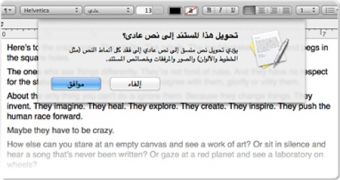Apple is enticing developers to “internationalize” their software, both on the Mac and on the iPhone, offering up instructions, programming resources, links to third-party localization vendors, and more.
A colorful section on Apple’s developer site called “Internationalization” holds a wealth of information regarding the importance of having an app localized in as many languages as possible.
A box containing “developer success stories” quotes the likes of PopCap and navigation expert TomTom as saying that localization has boosted their profits tenfold.
Apple explains: “The App Store and Mac App Store are available in over 120 countries, support 40 languages, and have the ability to handle international payment, currency conversion, taxation, and global distribution — making it easy for you to expand your business by selling apps to millions of users around the world.”
“iOS and Mac OS X are multilingual operating systems designed to work for users in their language of choice,” the Mac maker adds.
“Both operating systems are built on technologies which make using and localizing multilingual apps easy, including high quality extended fonts, support for typographic features, language specific input methods and auto-correction dictionaries, and keyboards that are customized for more than 50 languages.”
The company run by Tim Cook advises developers to use app bundles to store and load localized representations of resources.
Both iOS and Mac OS X offer extensive Unicode support for working with text from any language.
Other powerful text-handling technologies come by means of Cocoa and Cocoa Touch, Apple’s native programming languages.
Auto Layout, a feature typical to Cocoa (introduced in OS X Lion last year) is said to automatically adjust the dimensions and layouts of views. The developer’s work is cut in half since this particular function practically removes the need to tweak user interfaces for different languages by hand.

 14 DAY TRIAL //
14 DAY TRIAL //